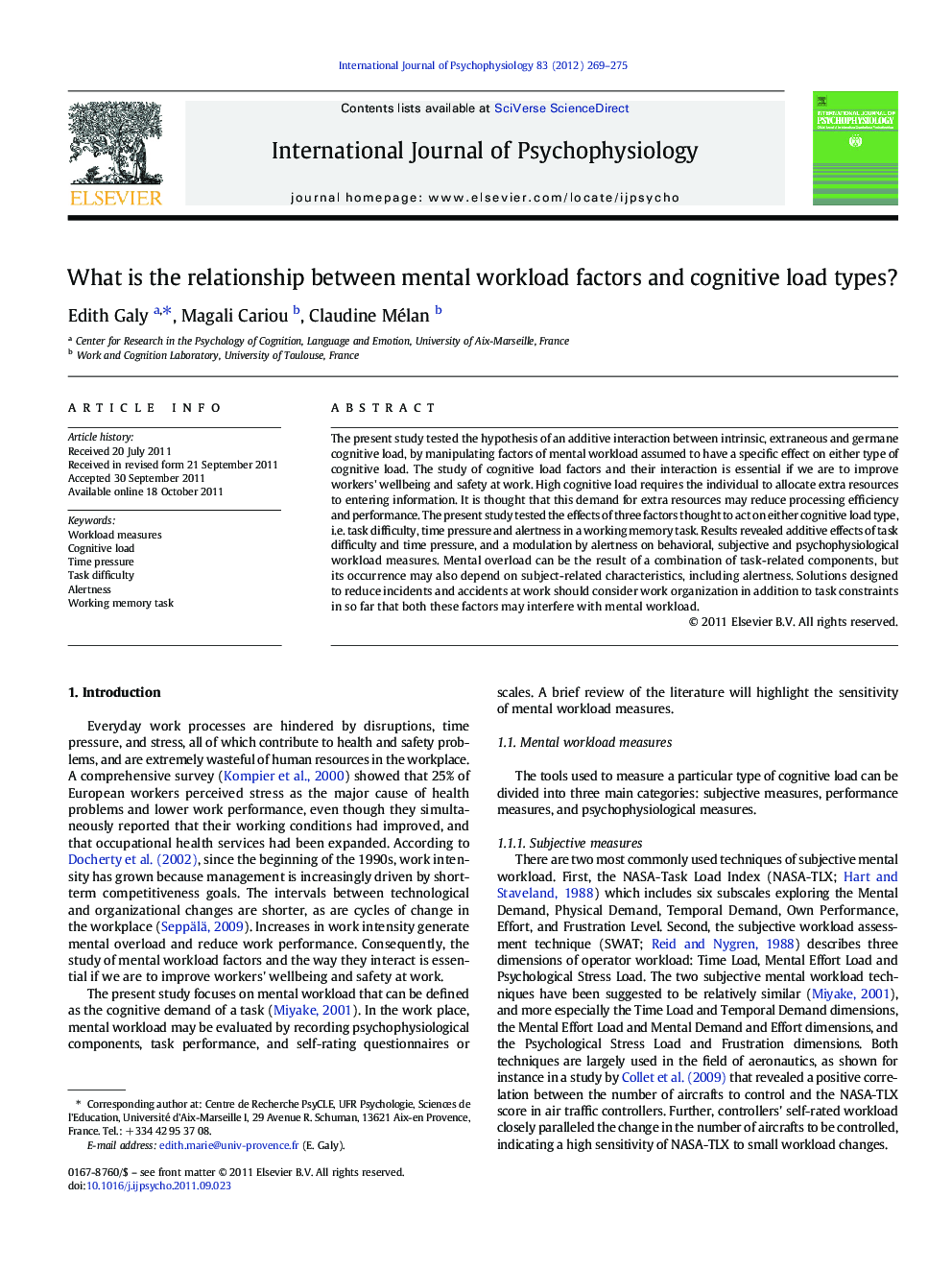| کد مقاله | کد نشریه | سال انتشار | مقاله انگلیسی | نسخه تمام متن |
|---|---|---|---|---|
| 931349 | 1474445 | 2012 | 7 صفحه PDF | دانلود رایگان |

The present study tested the hypothesis of an additive interaction between intrinsic, extraneous and germane cognitive load, by manipulating factors of mental workload assumed to have a specific effect on either type of cognitive load. The study of cognitive load factors and their interaction is essential if we are to improve workers' wellbeing and safety at work. High cognitive load requires the individual to allocate extra resources to entering information. It is thought that this demand for extra resources may reduce processing efficiency and performance. The present study tested the effects of three factors thought to act on either cognitive load type, i.e. task difficulty, time pressure and alertness in a working memory task. Results revealed additive effects of task difficulty and time pressure, and a modulation by alertness on behavioral, subjective and psychophysiological workload measures. Mental overload can be the result of a combination of task-related components, but its occurrence may also depend on subject-related characteristics, including alertness. Solutions designed to reduce incidents and accidents at work should consider work organization in addition to task constraints in so far that both these factors may interfere with mental workload.
► We examined interaction of mental workload factors.
► We studied task difficulty, time pressure and alertness effects on memory performance.
► We used on behavioral, subjective and psychophysiological workload measures.
► Results revealed different sensitivity of measures to mental workload factors.
Journal: International Journal of Psychophysiology - Volume 83, Issue 3, March 2012, Pages 269–275